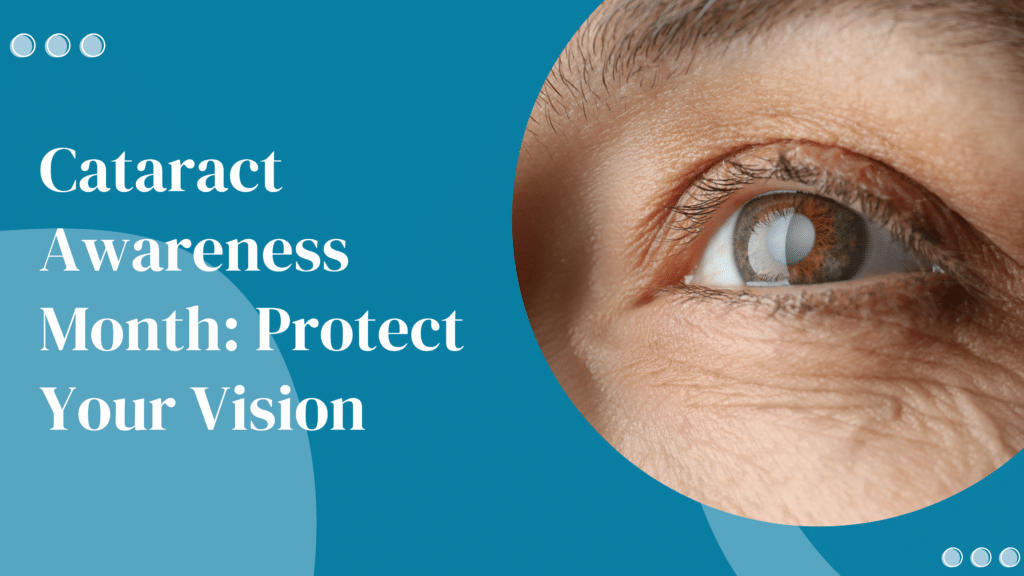
June is Cataract Awareness Month, a time dedicated to spreading awareness about one of the leading causes of vision impairment and blindness worldwide. At Regional Eye Center, we believe in the power of education and proactive eye care to maintain optimal vision health. Here’s everything you need to know about cataracts and how to protect your sight.
What Are Cataracts?
A cataract is a clouding of the eye’s natural lens, which lies behind the iris and the pupil. This condition can lead to a decrease in vision and, if left untreated, can result in blindness. Cataracts often develop slowly and can affect one or both eyes. They are commonly associated with aging, but they can also be caused by other factors such as:
- Diabetes
- Prolonged exposure to ultraviolet (UV) light
- Smoking
- Obesity
- Hypertension
- Previous eye injuries or inflammation
- Certain medications
Symptoms of Cataracts
Recognizing the early symptoms of cataracts is crucial for timely treatment. Common signs include:
- Blurry vision
- Difficulty seeing at night
- Sensitivity to light and glare
- Seeing ‘halos’ around lights
- Fading or yellowing of colors
- Double vision in a single eye
- Frequent changes in prescription for glasses or contact lenses
Are you experiencing these symptoms? Take our Cataract Self-Test and find out if you are a candidate!
Preventive Measures
While cataracts are often a part of the natural aging process, there are several steps you can take to reduce your risk:
- Regular Eye Exams: Early detection through comprehensive eye exams is key. Adults over 60 should have an eye exam at least once a year.
- Protect Your Eyes from UV Rays: Wear sunglasses that block 100% of UVA and UVB rays, and consider wearing a hat with a brim.
- Healthy Diet: Eat a diet rich in fruits and vegetables. Nutrients like vitamins C and E, lutein, and zeaxanthin are beneficial for eye health.
- Manage Health Conditions: Keep conditions like diabetes and hypertension under control.
- Quit Smoking: Smoking increases the risk of developing cataracts.
- Limit Alcohol Consumption: Excessive alcohol can contribute to cataract formation.
Treatment Options
If you are diagnosed with cataracts, modern medicine offers effective treatments. The most common treatment is cataract surgery, where the cloudy lens is removed and replaced with a clear artificial lens. This procedure is safe and typically performed on an outpatient basis.
At Regional Eye Center, we provide comprehensive cataract evaluations and state-of-the-art treatment options. Our experienced ophthalmologists are committed to preserving and improving your vision through personalized care plans.
This Cataract Awareness Month, we encourage you to schedule an eye exam, especially if you haven’t had one in the past year. Early detection can prevent vision loss and improve your quality of life.




